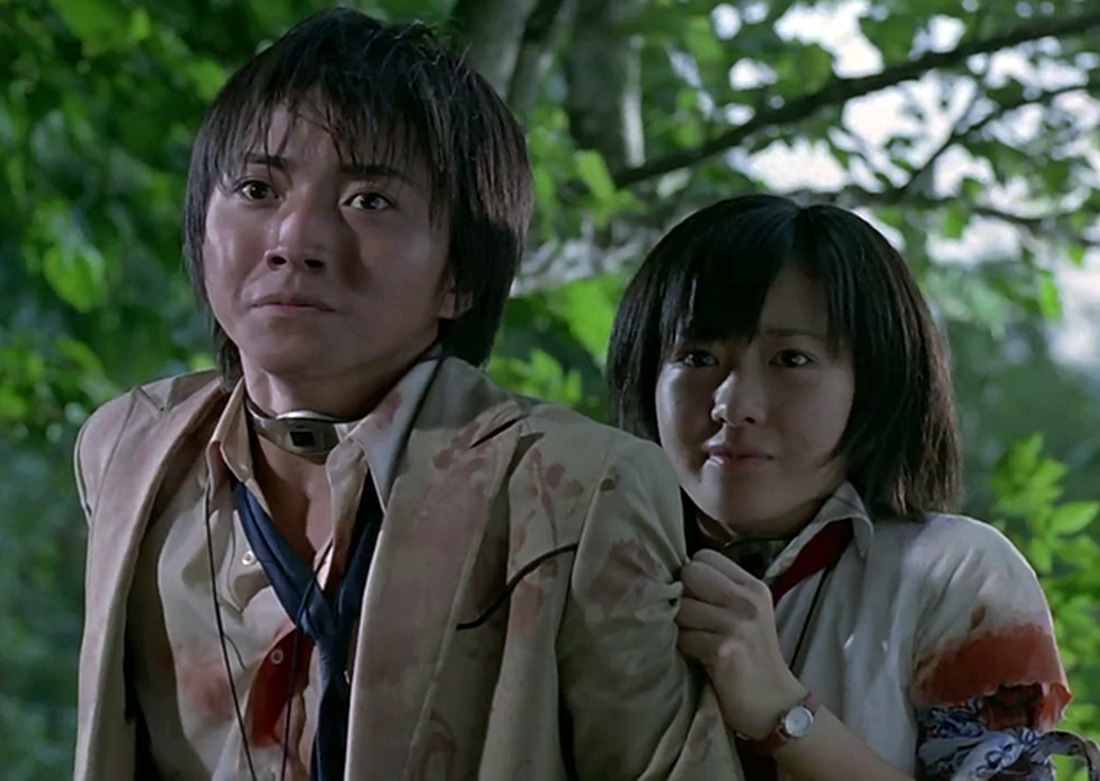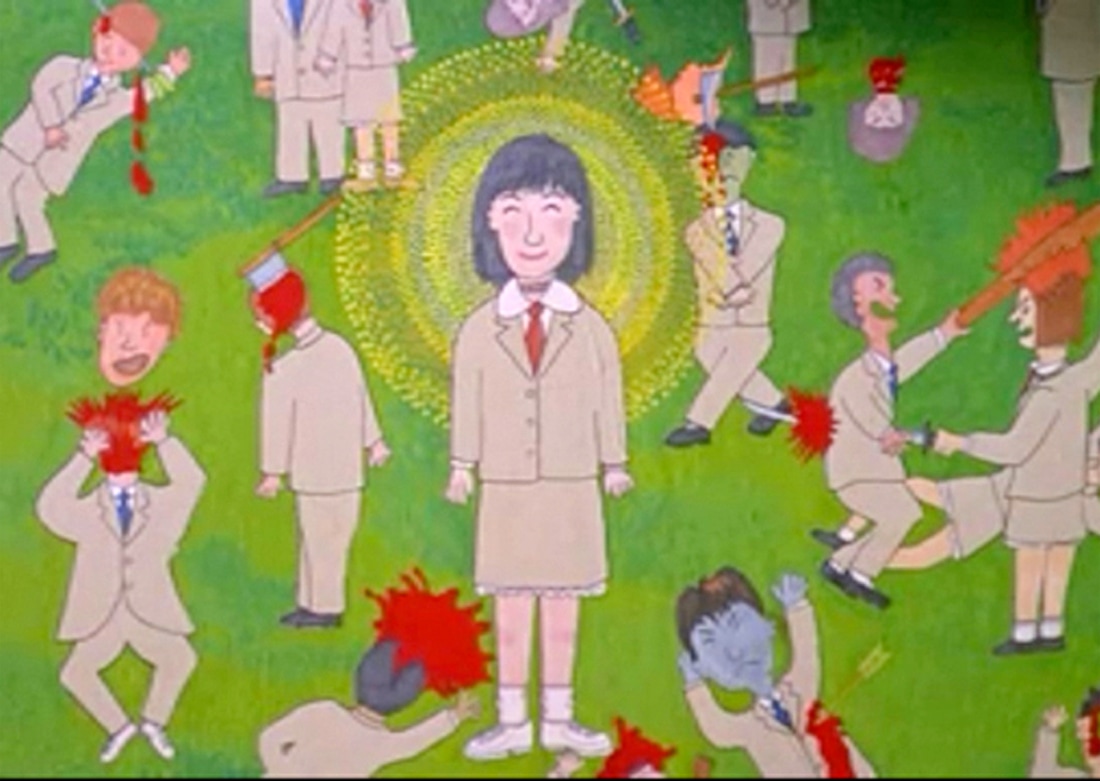curator's noteThis week our writers delve deep into the brutal fight for survival in their exploration of Kinji Fukasaka's Japanese teen-horror BATTLE ROYALE (2000). SOCIETY'S BATTLEMATTHEW WEARSReleased at the start of the millennium, BATTLE ROYALE (Kinji Fukasaka 2000) explores multiple issues that were at the forefront of concern for Japanese society. Even today the film holds just as potent a message about youth and a society addicted to violence. The film's premise - school children fighting to their death - can at first appear to be totally absurd. But as with other socio-political horrors, such as DAWN OF THE DEAD (George A. Romero 1978) and THE HOST (Bong Joon-Ho 2006), this initially unrealistic concept works in its favour. The film presents a world filled with insanity and, most disturbing of all, a world that is not too far away from our own. Commenting on western society's relationship with violence, the film uses excessive bloodshed, overly-malicious characters and inventive weapons such as tasers and crossbows to create a world in which humans must commit the worst atrocities in order to survive. The most disheartening aspect is just how fast a person's character and morals can change when their own interests are at stake, displayed at its most extreme when Kazushi Nîda (Hirotito Honda) viciously shoots Yoshio Akamatsu (Shin Kusaka) with a crossbow in the first few minutes of the battle. BATTLE ROYALE is a film that asks the audience to consider how far they would go to survive in the same situation but also how far society would go when faced with equally difficult problems. The film highlights the inexcusable lack of humanity that already exists within our everyday culture and acts as a forewarning for what is seemingly imminent. The film is a harrowing depiction of a bleak future, a future where all our current failures are maximised to their fullest. Most harrowing of all is the lack of alternative choices that the film gives us. Every day this week a different writer will provide their perspective on our MUBIVIEWS film and each post will be open to comments from our readers. Watch BATTLE ROYALE on mubi.com until 30 May 2017 and join the discussion!
0 Comments
curator's noteThis week our writers delve deep into the brutal fight for survival in their exploration of Kinji Fukasaka's Japanese teen-horror BATTLE ROYALE (2000). TAKING A STAND BEFORE THE FALLGEORGE LEEThe premise of BATTLE ROYALE (Kinji Fukasaku 2000) is simplistically horrific. A class of students must murder each other until one survives. While this idea is straightforward, the ensuing decision each student makes is anything but. We are often faced with ethical dilemmas in our day to day life but never anything quite as daunting as to whether we should murder our classmates. The film unfurls with students taking up various ethical stand points. The most common viewpoint seems to be of reflective morality. This means that what is ethically correct is not set in stone but depends on the situation. Most students take this approach when they decide whether to kill or not. They are aware that their actions are wrong but are acting in self defence, which seemingly justifies their actions. Perhaps the most interesting of the viewpoints is that of Ogawa (Tomomi Shimaki) and Yamamoto (Yasuomi Sano) who refuse to kill regardless of circumstance. Due to this ideology, they try and escape rather than fight, which ultimately leads to their death when the pair jump off of a cliff to avoid killing their classmates. This is a form of deontological ethics, a theory that dictates it is the action itself that is the moral component, not the consequence. So in the case of BATTLE ROYALE; the act of killing is an immoral act even if the killer were to be victorious and survive the bloodbath. This is an idealistic viewpoint and one that is the basis of many legal systems. However, BATTLE ROYALE shows the futility of this view. Ogawa and Yamamoto make their stand but to what end? They are simply another two victims in the ensuing onslaught, their deaths just as tragic as that of their classmates. Every day this week a different writer will provide their perspective on our MUBIVIEWS film and each post will be open to comments from our readers. Watch BATTLE ROYALE on mubi.com until 30 May 2017 and join the discussion!
|
MUBIVIEWSOne MUBI film, five perspectives, endless possibilities. Archives
July 2017
Categories
All
|




 RSS Feed
RSS Feed
